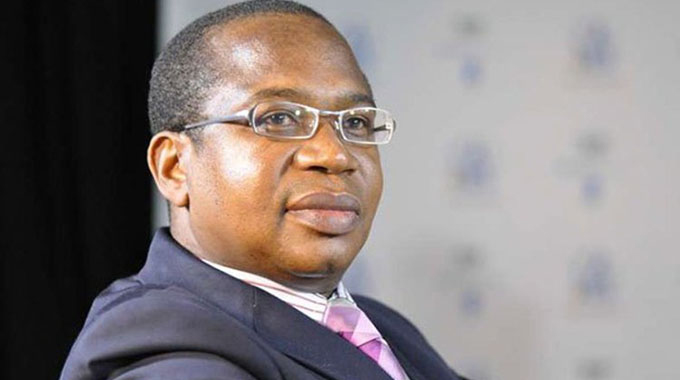Govt to address wage compression

Oliver Kazunga, Acting Business Editor
GOVERNMENT will this year prioritise addressing wage compression by stabilising prices while allowing salaries to be increased to levels that are commensurate with price levels prevailing in the market.
Finance and Economic Development Minister Professor Mthuli Ncube said this last week when he visited residents in Harare’s upcoming suburbs of Caledonia and Fidelity Park where he had gone to hear their concerns in order to assist the Government when formulating policies.
In a video recorded by ZTN during the tour, Prof Ncube said Government was aware that the cost of living has gone up and thus focus would this year be on stabilising prices, and adjusting wages to levels commensurate with prices obtaining in the market to cushion consumers from inflationary pressures that have been caused by the parallel market exchange rate.
“We know that the cost of living has gone up and we will make sure that we try to limit the increases in school fees, we also want to stabilise the currency, we want to make sure that there is more electricity available and also food.
“When we adjusted the currency towards a market-determined currency by introducing the Zimbabwe dollar away from the 1:1 exchange rate with the US dollar, the wages didn’t adjust accordingly relative to prices, but prices moved up.
“Relative to prices, wages are way behind price increases and that’s what we mean by wage compression,” said Prof Ncube.
In light of wage compression, he said it was imperative for the wages to continue creeping up while prices remain stable.
“Prices should remain stable and to create that stability we need the currency to be stable. So that’s one of our objectives this year.
“We need to make sure that there is currency stability, which means price stability and then we allow wages to drift up and trying to close that gap.”
He said both public and the private sector should adddress wage compression, adding that Government has noted that in some instances companies were not able to defend their budgets.
“But for exporters they have quite a big room as they have benefited from the currency adjustment in terms of export earnings . . . so that’s where we expect the wage adjustment to really come from.
“While there is less room for companies who are net importers to manoeuvre, with time the necessary wage adjustments have to be effected.
“Right now, we are negotiating with civil servants, the idea is that we give them a cost of living adjustment, we expect the private sector to do the same to make sure that we reduce this gap between wage levels and prices,” said Prof Ncube.
Last month, Government and civil servants’ representatives agreed on a salary increment ranging between 133 percent and 172 percent depending on one’s grade.
The increment will see the lowest paid worker earning $2 500 per month starting this month backdated to January 1, 2020.
Again, there will also be a Cost of Living Adjustment (Cola) that will also be paid this month again backdated to January.
Responding to a question from one of the residents in Fidelity Park, as to what Government was doing to ensure price stability in the economy, Prof Ncube said:
“When we pronounced austerity, it was really about Government’s own behaviour in terms of managing its resources. Of course that has impact right across the economy but we needed to live within our means.
“But also meant that we needed to adjust the rest of the economy including the introduction of a domestic currency, no country can develop without its own currency that it has control over; then any adjustment is going to cause pain so that has resulted in prices increasing quite sharply while wages haven’t increased commensurately to catch up with those price increases. If you look at all the price increases, they are all driven by the exchange rate in the parallel market.
“The way forward is to stabilise the currency looking at the causes of that currency instability and stabilise it.
“We know the causes so as central government we want to make sure that we live within our means, our budget deficits shouldn’t contribute to currency volatility.”
In June last year, the Government through Statutory Instrument 142 of 2019 removed the multi-currency regime which Zimbabwe adopted in February 2009 to tame inflation which had reached unprecedented levels.
While the local currency was introduced to restrict domestic transactions to the Zimbabwe dollar to enhance the affordability of goods and services by the majority, parallel market exchange rates have gone up devaluing local currency as well as pushing the prices of goods and services beyond the reach of the majority.
On the monetary side, Prof Ncube said Government would this year and beyond make sure there is no excessive money supply growth and this will impact positively by taming currency volatility and the value of the currency as well as the level of interest rates in supporting a stable currency.
As part of efforts to uplift the living standard of the citizens, the Government would also prioritise improved power supply to stimulate growth of industries.
“The issue of providing energy is critical and is one of the priorities that we have placed at the top this year so we are putting in place facilities to import power as you know that we have challenges with water levels at Kariba, which explains why we have these power outages because of the drought.
“We are importing from South Africa, and Mozambique and we’ll be importing more from Mozambique going forward to make sure that citizens can have access to more reliable power so that industry can also have access to power and be able to produce,” he said. — @okazunga








Comments